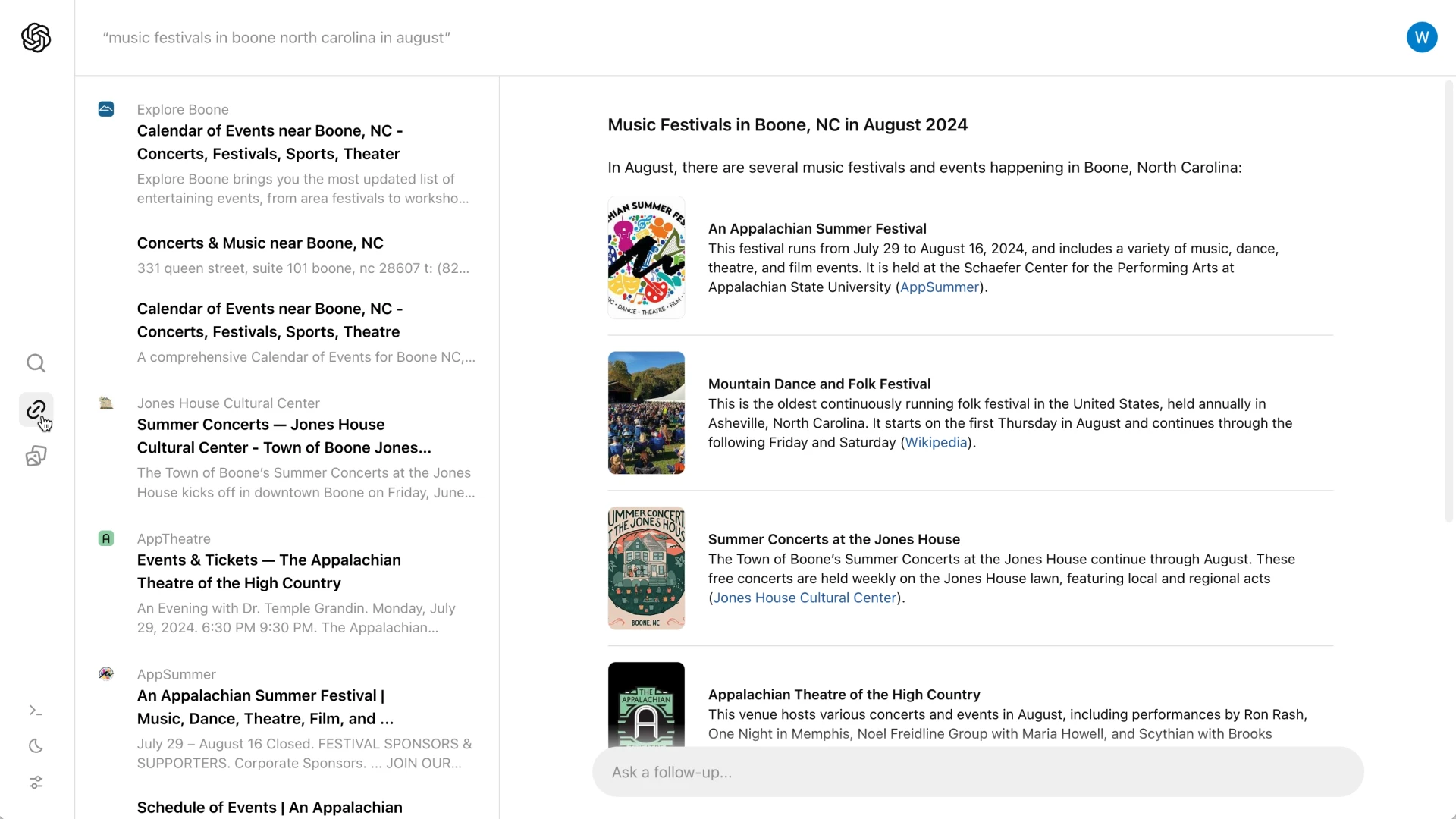Introduction
OpenAI has announced its entry into the search engine market with SearchGPT, an AI-powered search engine designed to revolutionize the way we find information online. With its innovative approach and advanced capabilities, SearchGPT is set to challenge the dominance of Google and other search giants.
What is SearchGPT?
SearchGPT is an AI-driven search engine that goes beyond traditional search methods. Instead of just providing a list of links, it organizes and summarizes information, making it easier for users to find what they need quickly and efficiently. Powered by the GPT-4 family of models, SearchGPT offers real-time access to information across the web, providing a more interactive and user-friendly search experience.
Key Features of SearchGPT
Real-Time Information
One of the standout features of SearchGPT is its ability to deliver real-time information. Whether you’re searching for the latest news, upcoming events, or specific how-to guides, SearchGPT pulls up-to-date data from the internet and presents it in an easy-to-digest format. For example, a search for “music festivals in Boone, North Carolina in August 2024” will yield detailed descriptions of events along with attribution links.
Visual Answers
Another exciting feature is “visual answers,” which enhances the search experience with multimedia content. While details on this feature are still limited, it promises to incorporate AI-generated videos, images, and other visual elements to provide a richer understanding of search queries.
Follow-Up Questions and Relevant Links
SearchGPT doesn’t stop at initial search results. Users can ask follow-up questions or click on sidebars to explore related links, ensuring a deeper dive into topics of interest. This interactive approach helps users get comprehensive answers without the need to conduct multiple searches.
Collaboration with News Partners
To ensure accuracy and reliability, OpenAI has collaborated with various news organizations, including The Wall Street Journal, The Associated Press, and Vox Media. These partnerships help ensure that SearchGPT’s responses are well-sourced and credible. Publishers also have control over how their content is used and can opt out of training OpenAI’s models while still appearing in search results.
SearchGPT vs. Google
A New Competitor in the Search Market
SearchGPT’s launch marks a significant challenge to Google, which has been integrating AI features into its search engine in response to rising competition. Google’s fear of losing users to innovative tools like SearchGPT has driven it to accelerate its AI development. However, OpenAI’s approach to search, with its emphasis on organized, summarized, and interactive results, offers a distinct alternative that could attract a substantial user base.
Avoiding Pitfalls
OpenAI appears to be learning from the mistakes of other AI search tools. For instance, Perplexity has faced criticism for its AI summaries allegedly copying content from publishers without proper attribution. In contrast, SearchGPT emphasizes clear, in-line attribution and links, ensuring that users know the sources of the information and can easily engage with original content.
The Prototype Phase
Limited Release
Currently, SearchGPT is in its prototype phase, accessible to only 10,000 test users. This limited release allows OpenAI to gather valuable feedback and refine the search engine before a wider rollout. The prototype phase also provides a buffer for any inaccuracies or issues that may arise, allowing OpenAI to address them promptly.

Future Plans
OpenAI plans to integrate SearchGPT directly into ChatGPT, expanding its functionality and making it a more comprehensive tool. As SearchGPT evolves, it will likely include more features and improvements based on user feedback and technological advancements.
The Financial Aspect
Running an AI-powered search engine like SearchGPT is costly. OpenAI’s expenses for AI training and inference are projected to reach $7 billion this year. While SearchGPT will be free during its initial launch, the absence of ads indicates that OpenAI will need to develop a monetization strategy soon. Whether through subscription models, partnerships, or other means, finding a sustainable revenue stream will be crucial for the long-term success of SearchGPT.
Conclusion
SearchGPT represents a significant leap forward in the world of search engines. By leveraging the power of AI, OpenAI is poised to disrupt the market and offer a unique, user-centric alternative to traditional search methods. With its real-time information, visual answers, and collaborative approach with news partners, SearchGPT is set to redefine how we search for and interact with information online. As it moves beyond the prototype phase, the search engine’s potential to challenge industry giants like Google will become increasingly apparent.















 and then
and then